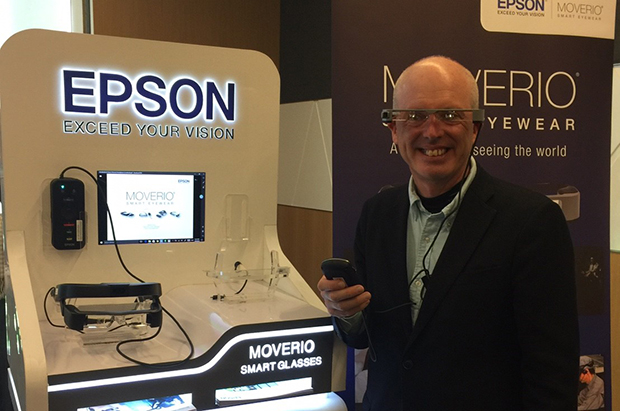
Seiko Epson Corporation, Japan's leading imaging equipment and computer printer manufacturer, has reinforced its commitment to the development of industrial inkjet printers, visual communication, wearable devices and robotics over the next 10 years in a bid to maintain its leadership in the areas.
The company has set out a 10-year vision, from 2015 to 2025, to continue its focus on the four rapid growth businesses.
"The vision is aimed at creating new revenue streams from corporate and industrial customers to offset our flagging consumer printer sales," said Alastair Bourne, manager for public relations and investor relations of Seiko Epson Corporation, commonly known as Epson.
Epson expects its global revenue to reach ¥1.7 trillion (582 billion baht) by 2025, up from an expected ¥1.1 trillion in the 2016 fiscal year, which ends in March 2017.
"Corporate customers will account for up to 70% of our total sales revenue over the next decade, compared with 45% currently," Mr Bourne said.
Epson has leveraged its core strength of high-performance sensors to develop products that meet the needs of customers.
Mr Bourne said Epson plans to introduce its wearable devices, particularly in professional sports, in Asean markets, in light of their successful introductions in Japan and Taiwan.
Shuji Hamaguchi, regional manager for professional printing, said sales for Epson's large-format printer for professional-level businesses grew by 13% this fiscal year, compared with 6% last year.
Global digital printing market, including inks, has a market value of US$33 billion per year.
Epson is looking to provide inkjet manufacturing process in new domains (signage, textile and labels) to support customers in the transition to digital printing, said Mr Hamuguchi.
The company also plans to launch third-generation smart glasses for augmented reality.
The augmented reality market is projected to reach $100 billion in total market by 2020.
Ng Ngee Khiang, regional general manager for robotics, said robotic automation has the potential to help factories in Southeast Asia to fuel growth, transform manufacturing processes, reduce labour costs and increase production capacity.
Epson plans to introduce its first dual arm robotic soon to facilitate complex assembly tasks in electronic manufacturing, he said.
Global robotic installations are estimated to increase by at least 15% in 2016-18.
Epson has developed robots for manufacturing purposes. The company has focused on the service sector, developing robotic nurses that will help administer care and support to people in hospitals.
Epson aims its robotic sales revenue to reach 100 billion yen by 2025, up from 16 billion currently.
Mr Yanyong said Epson Thailand also expects revenue from corporate customers to account for 70% of total revenue by 2025, up from 40% currently.
Up to 60% of Epson Thailand's revenue came from consumer and small office, home office segments. Thailand ranks as one of Epson's top three markets in Southeast Asia.